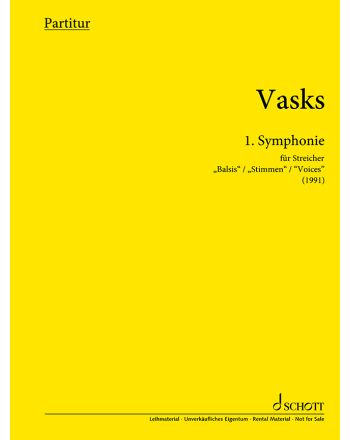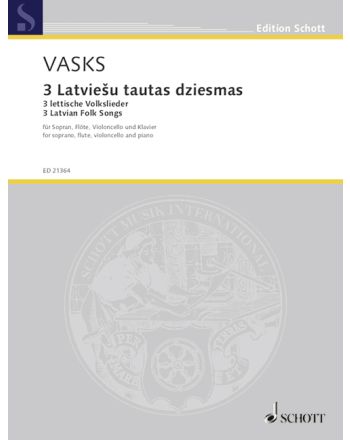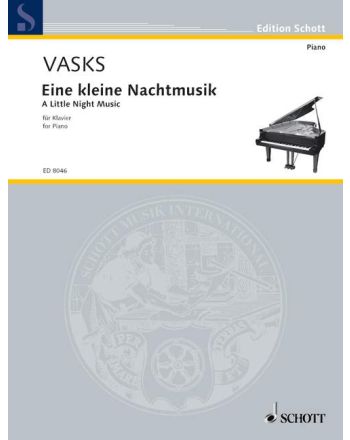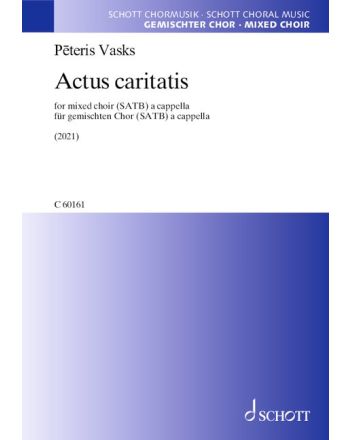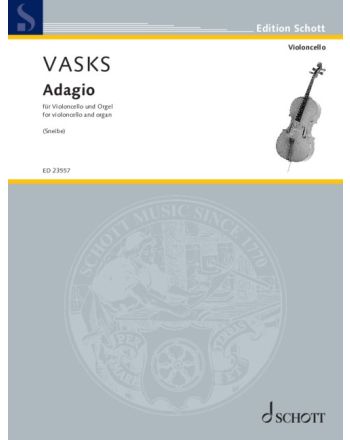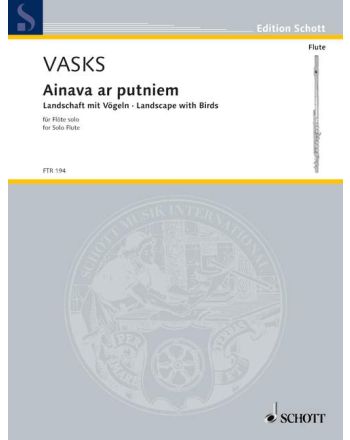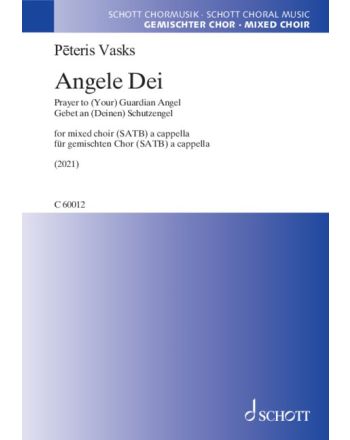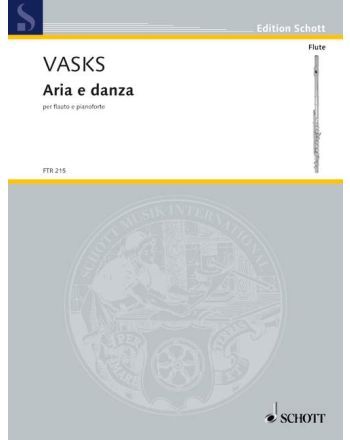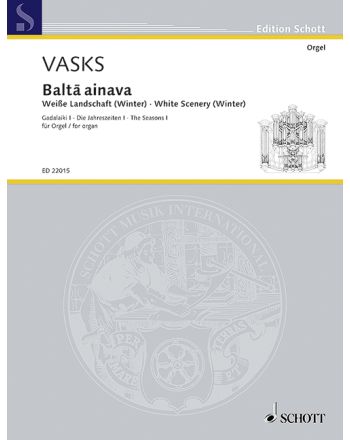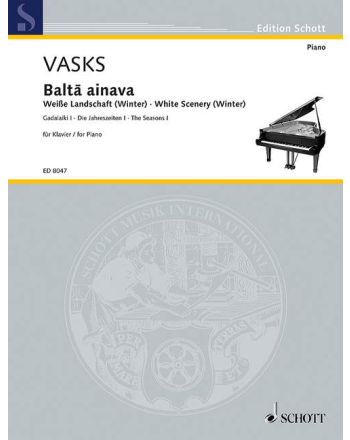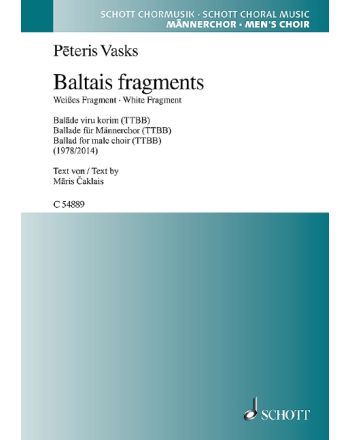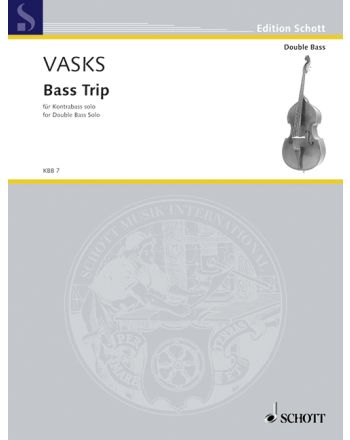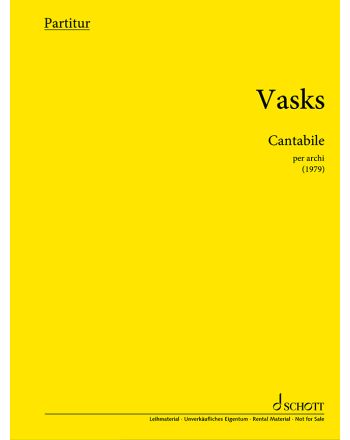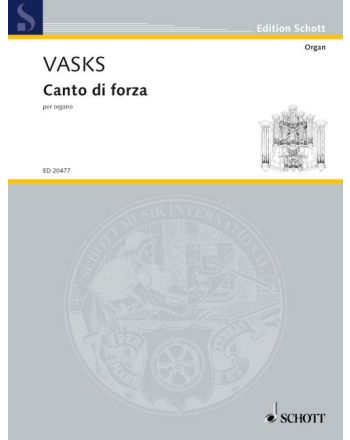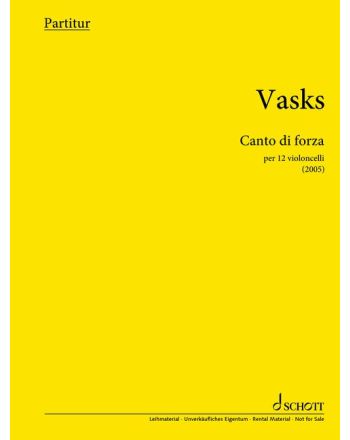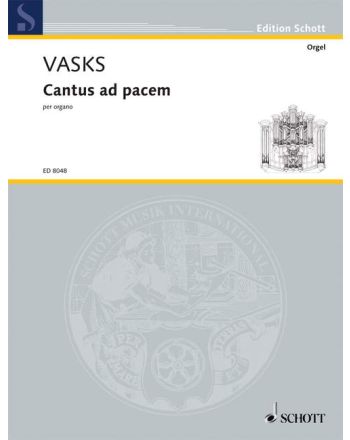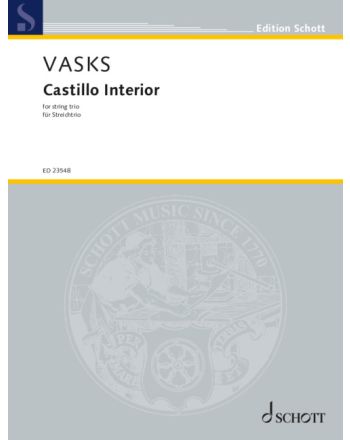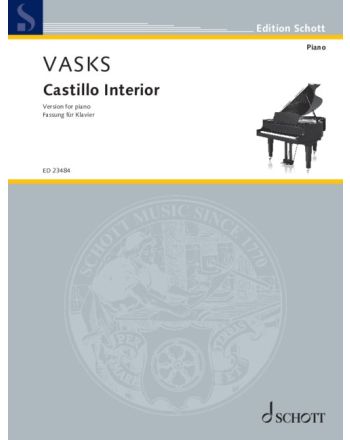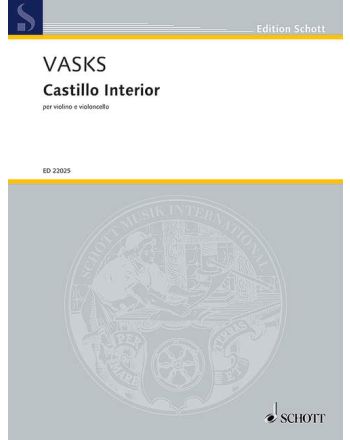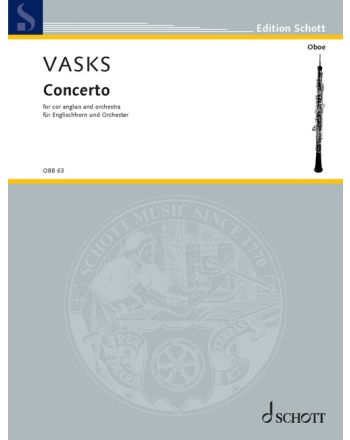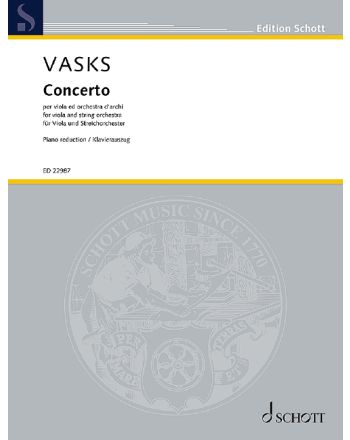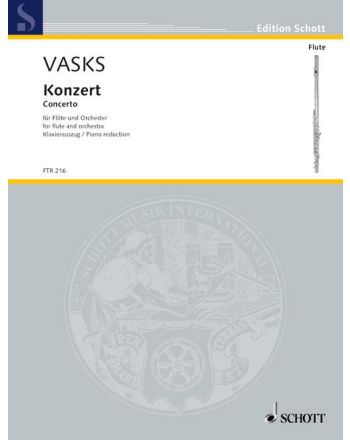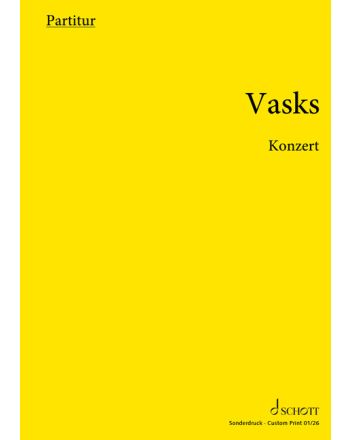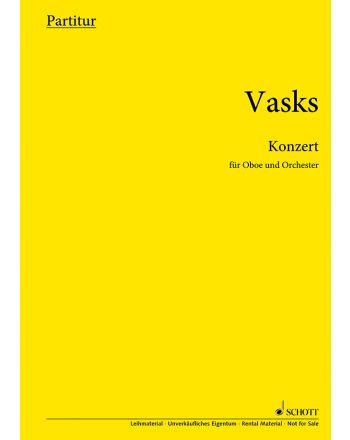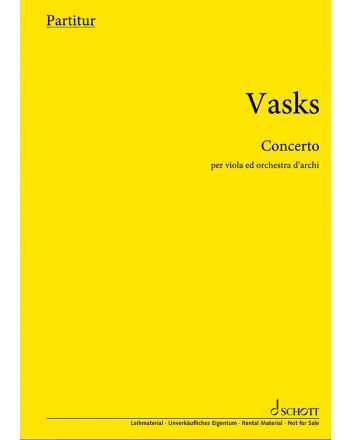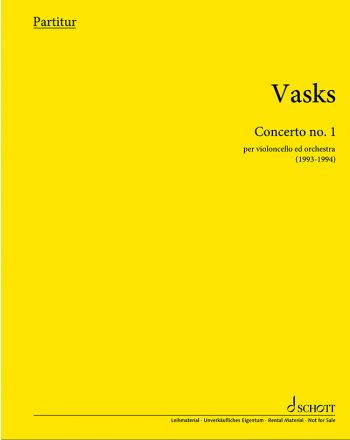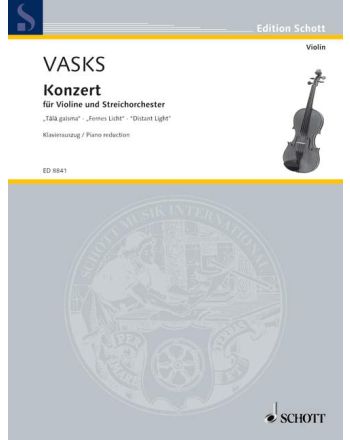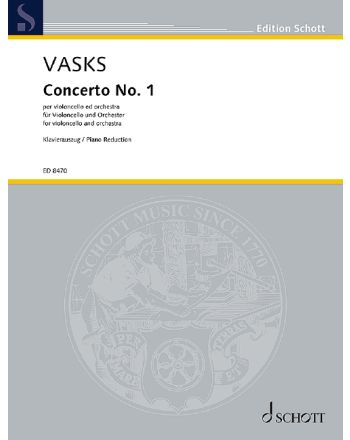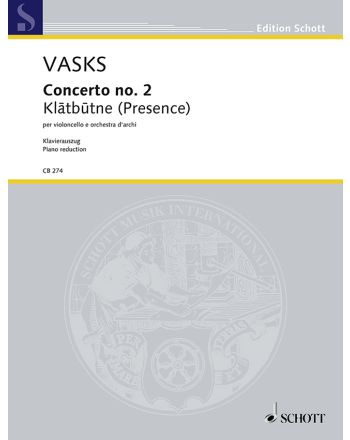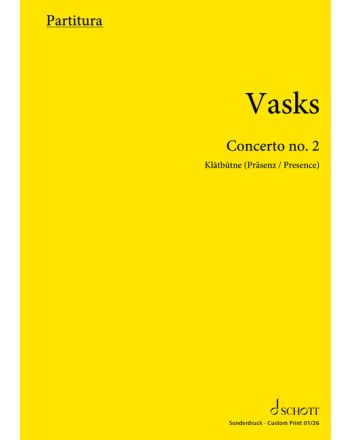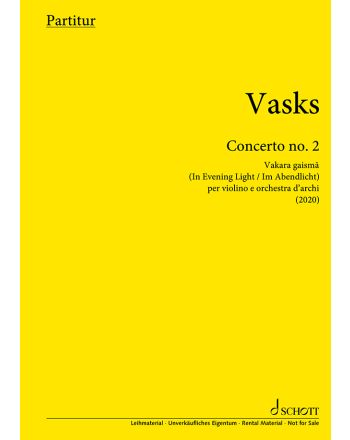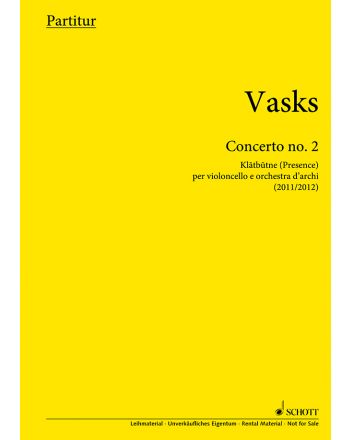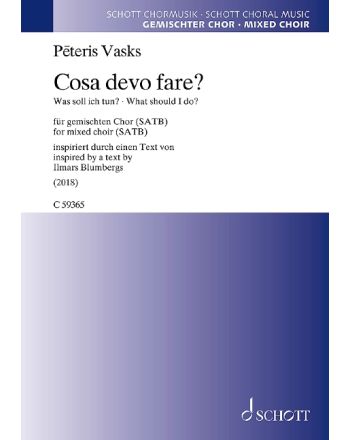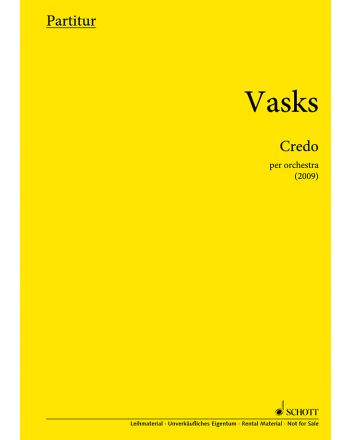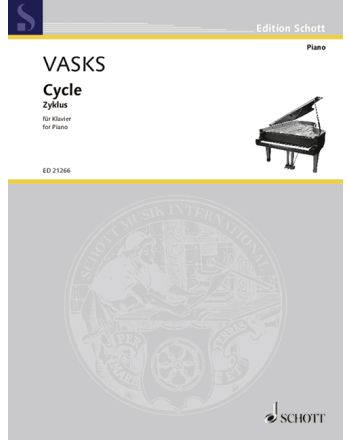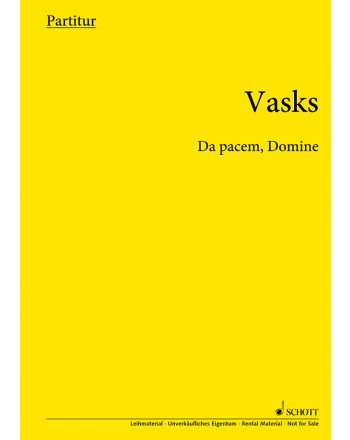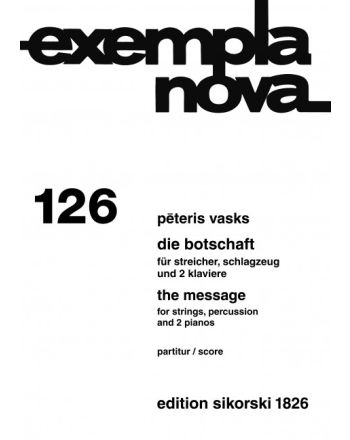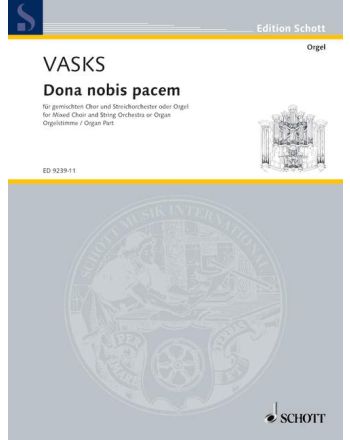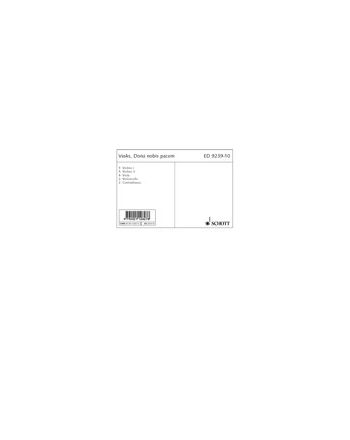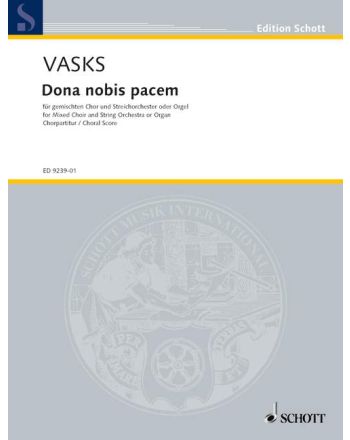
Pēteris Vasks
Upcoming Performances
About Pēteris Vasks
Most people today no longer possess beliefs, love and ideals. The spiritual dimension has been lost. My intention is to provide food for the soul and this is what I preach in my works. (Pēteris Vasks)
Pēteris Vasks was born on 16 April 1946 in Aizpute in Latvia as the son of a Baptist pastor who was well-known in Latvia. Vasks began his musical education at the local music school in Aizpute. He subsequently produced his first compositions and also studied the double bass at the Emīls Dārziņš Music School in Riga (1959-64). Vasks continued his double bass studies with Vytautas Sereika at the Lithuanian Conservatory in Vilnius up to 1970 before his one year of military service in the Soviet Army. Vasks's orchestral career had already began as early as 1961 as a member of various symphony and chamber orchestras, including the Latvian Philharmonic Orchestra (1966 to 1969), Lithuanian Philharmonic Chamber Orchestra (1969 to 1970) and the Latvian Radio and Television Orchestra (1971 to 1974). From 1973 to 1978, Vasks additionally studied composition with Valentin Utkin at the Latvian Music Academy in Riga. During the following years, he was a music teacher in Salacgrīva, Zvejniekciems und Jelgava and has taught composition at the Emīls Dārziņš Music School in Riga since 1989. During the Soviet period, Vasks suffered under the repressions of Russian cultural doctrine due to his beliefs and artistic convictions, but the Latvian composer’s works have swiftly achieved widespread recognition during the past few years. Choral music of major importance within Vasks Œuvre. His instrumental works are performed around the world by renowned musicians and frequently used by choreographers.
Vasks's compositions incorporate archaic, folklore elements from Latvian music and place them within a dynamic and challenging relationship with the language of contemporary music. The works are frequently given programmatic titles based on natural processes. Vasks’ intentions are however not so much a purely poetic praise of nature or showy tone painting, but rather the pursuit of themes such as the complex interaction between man and nature and the beauty of life on the one hand but also the imminent ecological and moral destruction of the world which he expresses in musical language. Frequent reference is made to his personal biography and the recent history of suffering on the part of the Latvian people. At the early age of 10, Vasks had already composed a freedom-fighting choral song in reaction to the sufferings of those who had been expelled from their houses and sent to detention camps overnight. The brass quintet Music for Fleeting Birds composed in 1977 can be understood as the yearning hope for freedom of travel which at that time was not permitted by the Soviet occupation, whereas the Musica dolorosa for strings dating from the year 1983 describes the extremely personal and intense mourning on the death of his sister. Together with the Musica adventus (1996), Musica appassionata (2002) and Musica serena (2015) the four "Musicae" for string orchestra form a cycle.
Vasks also views his three symphonies – the 1st Symphony for strings (“Voices”, 1991), the 2nd Symphony (1998/99) for large orchestra and the 3rd Symphony (2005) for large orchestra – as reflections of recent political events in the Baltic states and their effects on man and the environment. Cragged and disjointed clusters and aleatory sounds representing intimidation and destruction are contrasted with tender imitations of birdcalls in the wind section and simple melodies in a folksong style – frequently embedded in primarily minor harmonies – and mystically shimmering string textures.
In recent years, Vasks has favoured concertos for solo string instruments and works for string orchestra ar string Ensemble, working closely with renowned soloists. In his violin concerto Distant Light, premiered in 1997 by Gidon Kremer, the possibility of a better “ideal world” is never absent: a hint of musically accentuated hope which occasionally grows into something more. In 2006, he also dedicated his work Lonely Angel ("Meditation") to Kremer. The Piece for violin and string orchestra reflects Vasks' Vision of an angel gazing down on the world, concerned and hopeful at the same time. The seemingly infinite melody of the solo violin, climbing to extreme heights in wide arcs, is carried by the buzzing soundscapes of the string orchestra. As with his cello concerto Klātbūtne ("Presence"), which was composed for Sol Gabetta in 2012, it has seen numerous performances around the world. In 2016 Vasks composed the Concerto per viola ed orchestra d'archi, followed by a Concerto for oboe and orchestra for Albrecht Mayer. 25 years after Distant light Vasks composed his second violin concerto In Evening Light, premiered in 2022 by Hugo Ticiati and O/Modernt in Stockholm. The piece reflects on evening light as a metaphor for the twilight years of human beings.
As well as his instrumental music, his vocal works possess narrative characteristics. They convey messages and call for resistance against inhuman acts in the world. Zemgale (1989) for mixed choir, a dramatic poem, refers to a region in Latvia that became a symbol of the deportation of Latvian people. Vasks also deals with Soviet foreign rule in Litene (1993) for mixed choir. This choral ballad commemorates the murder of Latvian officers after the invasion of the Red Army in 1941: Extremely high and low pitches in the vocal lines depict riot, fright and screams through music. Today Pater noster (2000), Missa (2000) and Prayer "Lord, open our eyes" (2012), The Fruit of Silence (2014) and Da Pacem, Domine (2016) belong to Vasks' most popular pieces for mixed choir and orchestra.
Pēteris Vasks was appointed as the Main Composer of the Stockholm New Music Festival in 1996. The same year, he was awarded the Herder Prize from the Alfred Toepfer Foundation and the Baltic Assembly Prize. Vasks received the Latvian Great Music Award on three occasions: for Litene in 1993, for Distant Light in 1998 and for the 2nd Symphony in 2000. Vasks was created as an honorary member of the Latvian Academy of Sciences in 1994 and a member of the Royal Swedish Music Academy in Stockholm in 2001. In 2002, the composer became an honorary senator of the Latvian Cultural Academy in Riga. In 2005, he received the Cannes Classical Award for recordings of the violin concerto Distant Light and the 2nd Symphony. In 2021, he received the Grand Music Award of Latvia for his String Quartet No. 6. Vasks was Composer in Residence at the Presteigne Festival (2006) and Vale of Glamorgan Festival (2006, 2016), the Usedom Music Festival (2010), the Zurich Chamber Orchestra (2011/12) and the Canberra Music Festival (2012). In 2016 Vasks received the State Cultural Award of the Republic of Latvia and in 2019 the Honorary Diploma of the Latvian President. In 2022 Vasks has been awarded the Preis der Europäischen Kirchenmusik [European Church Music Prize] as well as the Opus Klassik as Composer of the Year. A complete recording of the piano cycle "The Seasons", begun in 1980 and finished in 2009, was released on the Wergo Label in 2010.
Worklist
Gallery




_Mlanie_Gomez_2015_1.JPG)
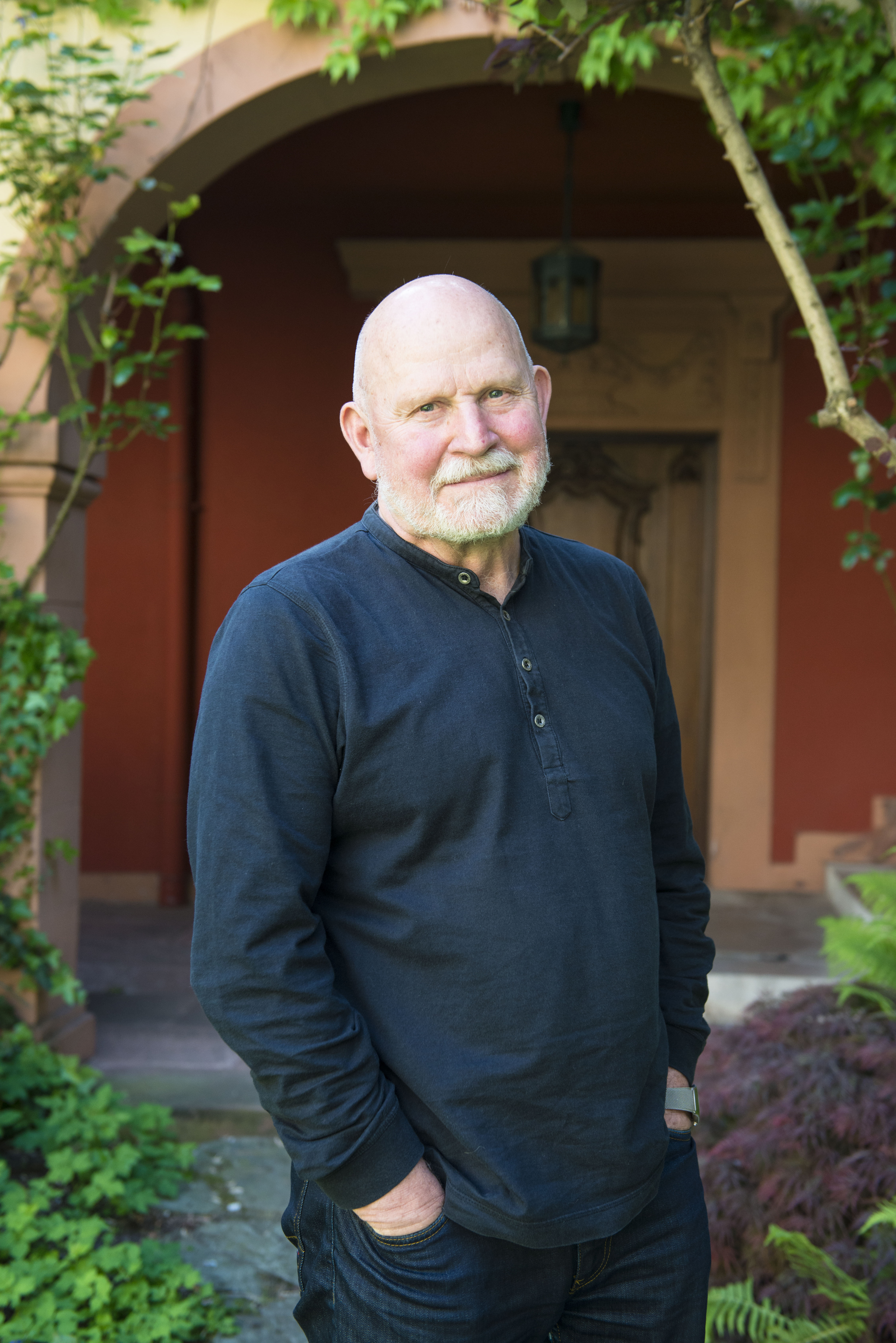
.jpg)
.jpg)

Chronology
Preis der Europäischen Kirchenmusik
Opus Klassik "Composer of the Year"
Products
-
for stringsHire/performance materialHire/performance material
-
for stringsComposer: Pēteris VasksMedia Type: Sheet musicEdition: Full and study scoreSeries: Music Of Our Time
1. Symphonie
Instrumentation: string orchestraProduct number: ED 8032Print editionPrint editionIn stock€40.00Incl. Tax, Excl. Shipping -
für großes OrchesterHire/performance materialHire/performance material
-
(3 Latvian Folk Songs)Composer: Pēteris VasksEdition: Score and partsSeries: Edition Schott
Instrumentation: soprano, flute, cello and pianoProduct number: ED 21364Product TypeIn stockAs low as €23.99Incl. Tax -
für großes OrchesterHire/performance materialHire/performance material
-
(A Little Night Music)Product TypeIn stockAs low as €9.99Incl. Tax
-
for choir a cappellaComposer: Pēteris VasksText writer: LiturgieEdition: Choral scoreSeries: Schott Choral Music
Product number: C 60161Product TypeIn stockAs low as €3.99Incl. Tax -
from Concerto no. 2 Klātbūtne (Presence) for violoncello and string orchestra (2011–2012)Composer: Pēteris VasksArranger: Ligita SneibeEdition: Score and partSeries: Edition Schott
Instrumentation: cello and organProduct number: ED 23557Product TypeIn stockAs low as €12.99Incl. Tax -
für StreichorchesterHire/performance materialHire/performance material
-
(Landscape with Birds)Composer: Pēteris VasksSeries: Il Flauto traverso
Edition Schott
Instrumentation: flute soloProduct number: FTR 194Product TypeIn stockAs low as €9.99Incl. Tax -
Prayer to (Your) Guardian AngelProduct TypeIn stockAs low as €4.99Incl. Tax
-
for Flute and PianoProduct TypeIn stockAs low as €19.99Incl. Tax
-
(White Scenery (Winter))Composer: Pēteris VasksArranger: Talivaldis DeksnisEdition: Separate editionSeries: Edition Schott
Instrumentation: organProduct number: ED 22015Product TypeIn stockAs low as €6.99Incl. Tax -
(White Scenery (Winter))Composer: Pēteris VasksEdition: Separate editionSeries: Edition Schott
Instrumentation: pianoProduct number: ED 8047Product TypeIn stockAs low as €8.99Incl. Tax -
(White Fragment)Composer: Pēteris VasksEdition: Choral scoreSeries: Schott Choral Music
Instrumentation: men's choir (TTBB)Product number: C 54889Product TypeIn stockAs low as €5.99Incl. Tax -
Composer: Pēteris VasksSeries: Double-Bass Library
Edition Schott
Instrumentation: double bass soloProduct number: KBB 7Product TypeIn stockAs low as €12.99Incl. Tax -
per archiHire/performance materialHire/performance material
-
Composer: Pēteris VasksOrchestra/ensemble: Latvijas Filharmonijas Kamerorkestris | Latvijas Nacioñalais Simfoniskais Orkestris, RigaConductor: Tovijs Lifsics | Pauls MegiMedia Type: CDProduct number: WER 62202CDCDIn stock€18.50Incl. Tax, Excl. Shipping
-
per organoProduct TypeIn stockAs low as €9.99Incl. Tax
-
per 12 violoncelliHire/performance materialHire/performance material
-
per organoProduct TypeIn stockAs low as €15.99Incl. Tax
-
Works for organCDCDIn stock€18.50Incl. Tax, Excl. Shipping
-
for string trioComposer: Pēteris VasksEdition: Score and partsSeries: Edition Schott
Instrumentation: violin, viola and celloProduct number: ED 23548Product TypeIn stockAs low as €33.99Incl. Tax -
Version for pianoComposer: Pēteris VasksEdition: Separate edition, pianoSeries: Edition Schott
Product number: ED 23484Product TypeIn stockAs low as €17.99Incl. Tax -
Composer: Pēteris VasksEdition: Score and partsSeries: Edition Schott
Instrumentation: violin and celloProduct number: ED 22025Product TypeIn stockAs low as €11.99Incl. Tax -
for cor anglais and orchestraComposer: Pēteris VasksEdition: Piano reduction with solo partSeries: Oboe Library
Edition Schott
Product number: OBB 63Product TypeIn stockAs low as €31.99Incl. Tax -
for viola and string orchestraComposer: Pēteris VasksEdition: Piano reduction with solo partSeries: Edition Schott
Instrumentation: viola and string orchestraProduct number: ED 22987Product TypeIn stockAs low as €33.99Incl. Tax -
for flute and orchestraComposer: Pēteris VasksEdition: Piano reduction with solo partSeries: Il Flauto traverso
Edition Schott
Konzert
Instrumentation: flute and orchestraProduct number: FTR 216Product TypeIn stockAs low as €29.99Incl. Tax -
for oboe and orchestraE-score PDFE-score PDFIn stock€34.99Incl. Tax
-
for oboe and orchestraHire/performance materialHire/performance material
-
for viola and string orchestraHire/performance materialHire/performance material
-
for flute and orchestraHire/performance materialHire/performance material
-
per violoncello ed orchestraHire/performance materialHire/performance material
-
"Tālā gaisma" / "Fernes Licht" / "Distant Light"Composer: Pēteris VasksEdition: Piano reduction with solo partSeries: Edition Schott
Concerto no. 1
Instrumentation: violin and string orchestraProduct number: ED 8841Product TypeIn stockAs low as €26.99Incl. Tax -
for violoncello and orchestraComposer: Pēteris VasksEdition: Piano reduction with solo partSeries: Concerto no. 1
Instrumentation: cello and orchestraProduct number: ED 8470Product TypeIn stockAs low as €32.99Incl. Tax -
"Tālā gaisma" / "Fernes Licht" / "Distant Light"Hire/performance materialHire/performance material
-
Klātbūtne (Presence)Composer: Pēteris VasksEdition: Piano reduction with solo partInstrumentation: cello and string orchestraProduct number: CB 274Product TypeIn stockAs low as €27.99Incl. Tax
-
Klātbūtne (Presence)Composer: Pēteris VasksMedia Type: E-score PDFEdition: ScoreSeries: Concerto no. 2
Product number: DLS 55171-01 Q790545E-score PDFE-score PDFIn stock€14.99Incl. Tax -
"Vakara gaismā" / "In Evening Light " / "Im Abendlicht"Hire/performance materialHire/performance material
-
Klātbūtne (Presence)Hire/performance materialHire/performance material
-
for mixed choir (SSSAAATTTBBB)Composer: Pēteris VasksMedia Type: Sheet musicEdition: Choral scoreSeries: Schott Chamber Choir
Language: LatvianProduct number: SKR 20071Print editionPrint editionOut of stock€38.50Incl. Tax, Excl. Shipping -
(What should I do?)Composer: Pēteris VasksEdition: Choral scoreSeries: Schott Choral Music
Instrumentation: mixed choir (SATB)Product number: C 59365Product TypeIn stockAs low as €5.99Incl. Tax -
for orchestraHire/performance materialHire/performance material
-
for pianoProduct TypeIn stockAs low as €9.99Incl. Tax
-
for mixed choir and string orchestraComposer: Pēteris VasksMedia Type: Hire/performance materialEdition: Performance materialLanguage: LatinHire/performance materialHire/performance material
-
A collection of new pieces for pianoMedia Type: Sheet musicInstrumentation: pianoLanguage: EnglishProduct number: ED 21470Print editionPrint editionIn stock€10.00Incl. Tax, Excl. Shipping
-
für Streicher, Schlagzeug und 2 KlaviereComposer: Pēteris VasksMedia Type: Sheet musicEdition: Study scoreSeries: exempla nova, 126
Instrumentation: strings, percussion, 2 pianosProduct number: SIK1826Print editionPrint editionIn stock€46.50Incl. Tax, Excl. Shipping -
Composer: Pēteris VasksEdition: Individual part, organSeries: Dona nobis pacem
Instrumentation: mixed choir (SATB) and string orchestra or organProduct number: ED 9239-11Product TypeIn stockAs low as €16.99Incl. Tax -
Composer: Pēteris VasksEdition: Set of string parts, 5 Violine I, 5 Violine II, 4 Viola, 3 Violoncello, 2 KontrabassSeries: Dona nobis pacem
Instrumentation: mixed choir (SATB) and string orchestra or organProduct number: ED 9239-10Product TypeIn stockAs low as €79.99Incl. Tax -
Composer: Pēteris VasksEdition: Choral scoreSeries: Edition Schott
Dona nobis pacem
Instrumentation: mixed choir (SATB) and string orchestra or organProduct number: ED 9239-01Product TypeIn stockAs low as €4.99Incl. Tax

